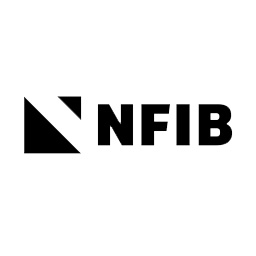
INDIANA – The NFIB Research Center released a new survey today assessing the impact inflation is having on small businesses. Small business owners first signaled inflation issues in the summer of 2021 when NFIB’s Small Business Economic Trends survey found increasing numbers of small business owners reporting “inflation” as their single most important problem. In March 2022, “inflation” overtook “labor quality” as the top business problem for small businesses.

“Indiana made some progress this legislative session by passing a $1.1 billion tax cut package, however, small business owners are still struggling,” said Natalie Robinson, NFIB State Director in Indiana. “According to our latest NFIB survey, on top of problems hiring workers and government-mandated COVID restrictions, there are new problems for our small business owners: inflation and supply chain issues.”

“Inflation is a big concern for small business owners and farmers like myself across Indiana,” said Nick Lund of Max Profit Ag in Markle. Lund’s family farms corn and soybeans and Nick also sells seeds and chemicals to farmers across NE Indiana. Nick’s father handles the farm while he sells seeds and chemicals. His hope is to one day take over the family farm. However, inflation and supply chain issues are real worries.
“Farmers were cost-conscious before but now prices for chemical and fertilizer have gone through the roof. They need to get in the field now and plant for the spring season, so they have to pay whatever it is that input currently costs – they have no choice. Prices have gone up by as much as 400% in some cases thanks to supply chain issues.”
Overall, all small employers reported inflation was impacting their business to varying degrees. Over half (62%) reported that inflation is having a substantial impact on their business while about a third (31%) reported it had a moderate impact. Only 6% of owners report it having a mild impact. This survey was conducted from April 14-17, 2022, with 540 responses collected.
Specific costs:
- Owners reported that “inventory, supplies, and materials” and fuel (gasoline, diesel, fuel oil, etc.) are the top contributing factors to higher costs in their business.
- Over three-quarters, (77%) of small employers reported inventory, supplies, and materials as being a substantial contributor to higher costs, while 18% reported moderate.
- Over three-quarters (77%) of small employers reported that rising prices for fuel (gasoline, diesel, fuel oil, etc.) are a substantial contributor to higher costs.
- Labor, rent and utilities contribute to cost pressures for many small employers, but to a lesser degree than supplies/inventory and fuel.
Absorbing costs:
- The main tool small employers have to absorb inflation pressure costs is to raise prices for goods or services, passing higher input costs on to their customers.
- Eighty-six percent of small employers are increasing the price of their goods or services.
- Eighty-four percent reported experiencing lower business earnings to some degree.
- Owners have also reported reducing the quantity of the goods or services offered to help stabilize cost increases with about a fifth (21%) of small employers reporting reducing the quantity of materials or goods used to produce the final product(s) to absorb higher costs.
- Thirty-one percent of small employers are taking on debt to finance higher costs.
Prices:
- Sixty-eight percent of small employers are planning to raise average selling prices in the next three months and 22% were not sure.
- Forty percent reported they would raise prices by 10% or more and about half (47%) reported between 4-9%.
- Almost three-quarters (72%) of small employers reported assessing the adequacy of their price levels of the goods or services they provide more frequently than twice a year.
- Thirty-one percent reported assessing price levels weekly, 21% monthly, and 20% every few months.
- About half (46%) of small employers have contracts with customers with fixed price agreements, making price adjustments more difficult depending on the terms of the contract.
Energy and gas costs:
- Nearly all (99%) of small employers reported the recent increase in gas and fuel prices is having some degree of negative impact on their business.
- About half (48%) report it has a substantial negative impact, 35% a moderate negative impact, 16% a mildly negative impact, 1% a positive impact, and 1% no impact.
- Forty-two percent of small employers characterized the cost of energy used in their business (electricity, natural gas, gasoline, and fuel oil) as one of the five largest business costs they have.
- When asked what activities business energy costs are primarily linked to, 26% said heating and/or cooling, 5% said lighting, 40% said operating vehicles, 26% said operating equipment and/or processes, and 3% said other.
Other:
- Forty-four percent of small employers reported that in the last six months they have been unable to acquire a key input needed to produce a good and service they offer to customers.
- About a quarter (27%) of small employers have experienced an increase in theft of their products or supplies over the past two years. Fifty-nine percent have not and 14% reported does not apply.



